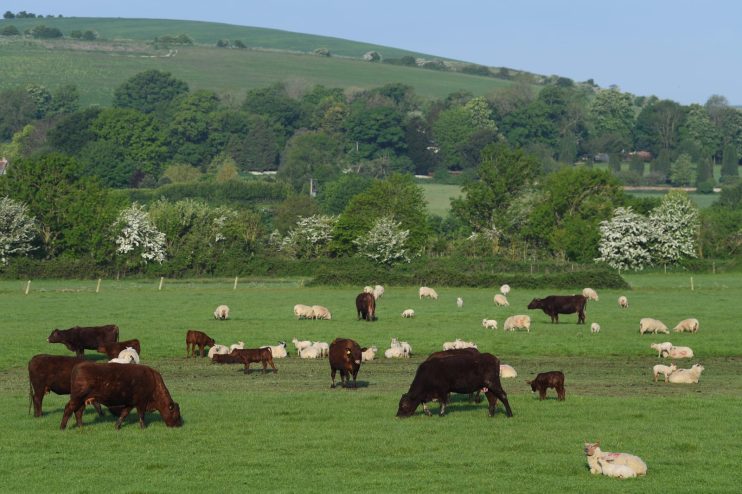Why now is the time to stand up for British farming

The farming sector has been challenged. Huge surges in demand at the peak of the pandemic for products such as minced beef (to account for the rise in batch cooking) have been matched by extremely low demand for more premium cuts usually reserved by restaurants, impacting the value farmers received for their livestock.
Read more: We do not need to compromise the economy to fix the environment
While supermarkets have to some extent benefited from remaining open throughout the crisis, the high level of activity food retailers experienced at the beginning created considerable pressures, particularly for the brave frontline staff working on our shop floors. The way people shopped during the peak of the pandemic also created significant supply and demand challenges — something shoppers will have noticed when seeing gaps on the shelves.
In the resulting disruption, some retailers have been forced to source from overseas as a temporary measure.
In the ongoing discussion of future trade deals, some commentators have stated that British shoppers won’t mind this continuing, that they should be given a choice and that many would accept imports that were farmed to lower food standards if it meant greater affordability.
Putting this theory to the test, we asked 2,000 members of the British public to give us their view. We found that, whatever some pundits might think, three quarters said they wanted to see UK supermarkets source more British produce.
The pandemic has only accelerated this trend. Indeed, in our new Waitrose Food & Drink Report, we reveal that searches for British meat and produce are up by 160 per cent year on year, with British beef searches up by 450 per cent, free range up by 370 per cent and British cheese searches a staggering 20 times higher than the previous year.
The appetite among residents of the UK for homegrown, higher welfare, British produce is clear.
And yet, according to the British Meat Processors Association (BMPA), beef still makes up nearly half of all meat imports to the UK, with pork accounting for just over a third and lamb around 20 per cent. Clearly, as an industry, there is still work to be done to get where the public wants retailers to be.
In terms of what Britain’s food and farming sector brings to this country, the contribution is vast. Not only does it provide us with all the high quality, safe and affordable food our nation needs, it is responsible for creating over four million jobs (that’s 14 per cent of the UK workforce), produces a substantial amount of renewable energy, and helps protect natural habitats to maintain our beautiful countrysides.
As for its financial contribution, it is estimated that British farming is responsible for providing more than £120bn to our economy each year, with some 149,000 farm businesses in operation today — more than the number of businesses involved in the motor trade, education, finance and insurance.
There is little doubt just how important the British farming sector is to our country and its future. We should be proud that there are so many farming businesses in operation in the UK, many of which are family run and have existed for generations. That, combined with the clear demand from the public for food retailers to source locally grown seasonal British produce, means there will be little excuse in the future to deviate from sourcing from home.
Read more: Government seeks site for world’s first nuclear fusion plant
Main image credit: Getty